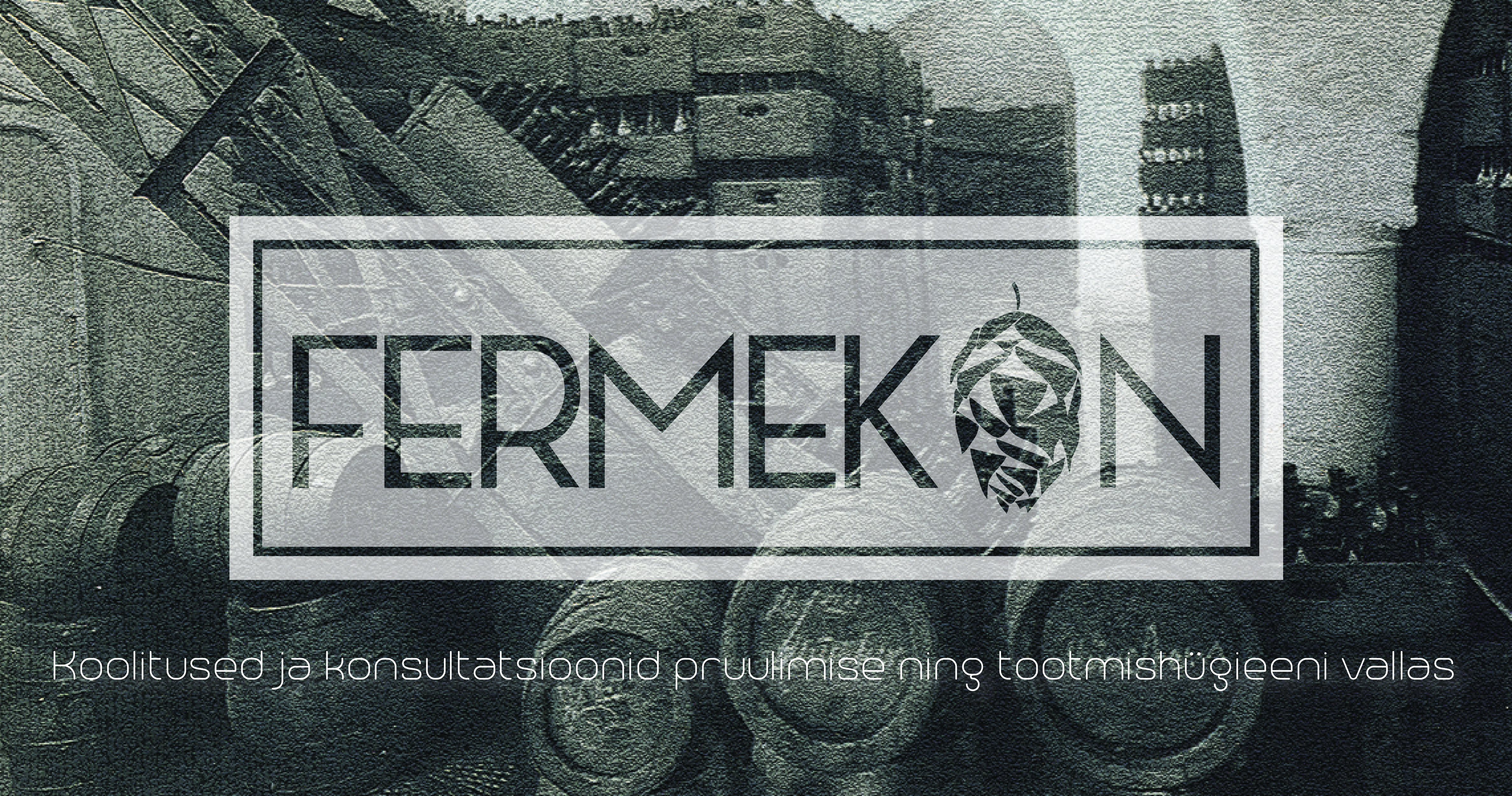The knowhow of brewing is one of the oldest skills of mankind. It is believed that the knowledge of brewing has passed 6000 – 9000 years of evolution. Drawings of brewing and beer consumption have survived from the prosperity era of Egypt and Babylonia, about 4300 years ago. Some old beer recipes have survived from these years in Egypt. Beer has been donated to Gods (it was supposed to change the fields fertile and the women breeding), it has been considered as medicine and used as a payment facility. Beer was even put into the grave with the deceased.
The art of brewing reached from Egypt to Europe – first to Greece, then to German tribes, British Islands and thereafter to the Nordic countries.
Originally, hops were not used for brewing of beer. Various herbs and flowers (gruit, yarrow, mugwort, myrrh, lupin, heather, etc) were used instead. First notes of hops being used in beer originate from the will of Frankish king Pippin the Short in 768. It was a lot later when hops became widely used for brewing.

Konrad Mendel`s Chronicle
The Brewer Monk, 1388
Illuminations on parchment
Nuremberg, Stadtbibliothek Nürnberg
Beer and brewing became a part of mystic cult in the middle Ages. It is difficult to overestimate the role of monasteries in the development of brewing skills as beer was brewed in monasteries and convents. Breweries in historical abbeys where beer has been made for centuries, are nowadays still in operation in Belgium, Netherlands and Germany. Brewing slowly moved from monasteries to towns and countryside.
At different times different rules and requirements have been set to control beer and brewing. The most well known of these laws is the Reinheitsgebot, which was launched in Bavaria in 1516. The mentioned law stated, that only three components – water, barley and hops are allowed to be used for brewing. Also the prices for different beers and penalties for violations were stated there. Originally the aim of that act was not so much to control the quality of beer but to forbid the usage of cereals used for baking bread. This law had also some intention to protect local brewers in competition with imported beers, as foreign beverages usually contained other raw materials also.
Brewing changed from mystery into intentional practice at the end of the 19th century, when yeasts and their role in the making of beer were discovered. Brewing has developed together with the developments in engineering and technology.
Some of the most important achievements influencing the progress of brewing:
– James Watt invented steam production in 1756 and in 1846 the first steam engine was introduced in the brewing industry in Munich, Germany.
– French scientist Louis Pasteur discovered that “Fermentation is life without oxygen” in 1860.
– The artificial production of cold was discovered by Carl von Linde in 1871 and the first cooling machine was taken into use in 1876.
– Emil Christian Hansen worked out the method for reproducing pure yeast culture in 1883, at the Carlsberg Laboratory in Copenhagen.
Today the whole process of brewing is ascertained and explained scientifically. Beer is made not just based on practical experiences but by intentionally directing the technological processes.
Brewing technology is one of the longest, most complicated, multistage and also one of the most interesting technologies in the manufacturing of food products and beverages.
Beer is brewed from natural raw materials (barley, water, and hops), by using and directing natural processes in the direction we want (barley germination, vital functions of yeasts, fermentation etc.).
BEER IS BEVERAGE MADE FROM NATURAL RAW MATERIALS BY PROCESSES ORIGINATING FROM THE NATURE.
Beer may be purchased from the store, but it can be very successfully prepared by yourself.
We, with our knowledge and experiences can guide, assist and educate you in order to brew your own beer.
If you would like to know more about the history of beer, then you are most welcome to our beer education course.
